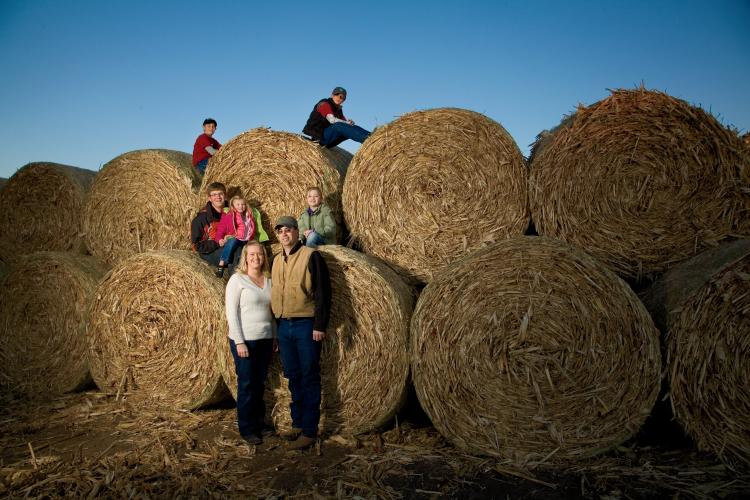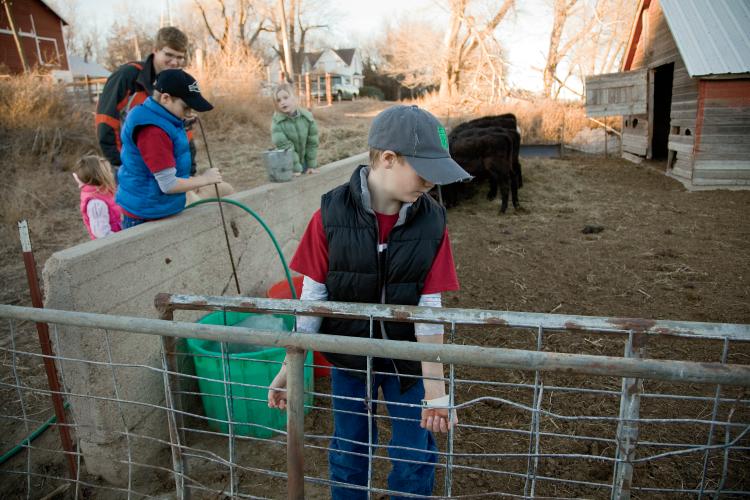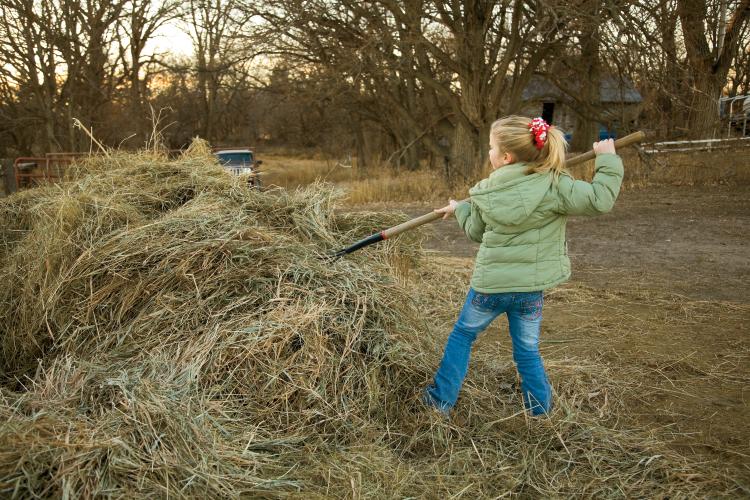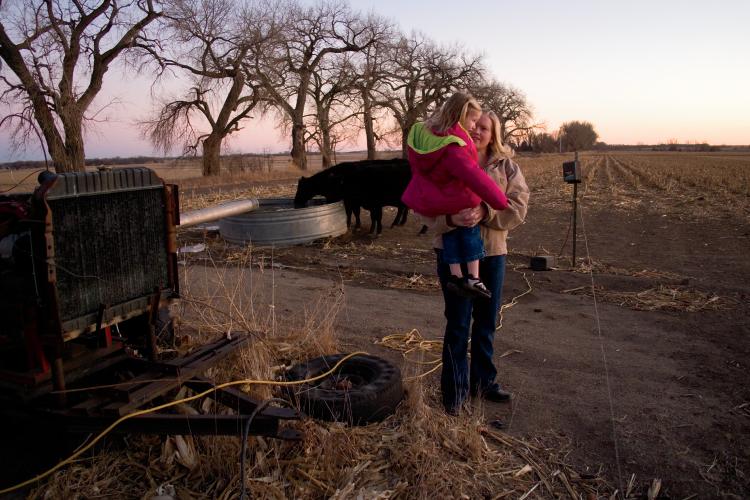Home > Nebraska > Nebraska Farm to Table > Get To Know a Nebraska Farm Family
Get To Know a Nebraska Farm Family

For Hilary Maricle and her husband Brian, farming isn’t just an occupation. It’s a lifestyle they wouldn’t trade for the world.
“I can’t imagine doing anything else,” says Hilary, who also teaches agribusiness to future farmers at Northeast Community College in Norfolk. “We’re the sixth generation on our farm. It’s been in Brian’s family since 1871. Our five kids love to help, and farming teaches them ethics, responsibility and hard work. Good morals aren’t an option.”
Located just south of Albion, Maricle Family Farms encompasses 1,000 acres, where the family raises beef cattle, corn and soybeans and “finish” hogs.
“Finishing hogs means we feed them from the time they are 45 pounds on up to when they’re ready to be harvested, or butchered,” Hilary says. “They grow really fast and are ready in about four and a half months.”
Brian farms full-time with his father, Keith. His mother, Mary Ann, is a high school English teacher, and Hilary’s parents, Bob and Patty Esch, have owned Esch’s Grocery in Spalding for more than 30 years. The Maricles’ five children are 15-year-old Austin, 9-year-old twins Carson and Cody, 6-year-old Cassidy, and 3-year-old Kate.
“All three boys help with the hogs, and Cassidy is old enough to help us with the smaller hogs when they first come in,” Hilary says. “All the kids help feed calves and horses, and the boys help sort cattle. They each have their chores. The bucket calves are their responsibility, and the kids know they don’t get supper until all the animals are fed.”

Life can get a little hectic for the Maricles with the demands of farming, school and extracurricular activities. There is no typical day.
“School days, I’m gone to work by 6:30 a.m., so Brian gets the kids up and off to school and our youngest to daycare,” Hilary says. “Then he starts his work day with chores, whether it’s fixing equipment, preparing the fields, planting, checking the cows or doing paperwork. The older kids ride the bus home, check in with Brian, and then they have to do either their homework or chores right away – it’s their choice what they do first, as long as their chores are done by dark.”
By the time Hilary wraps up at her job and picks up Kate from daycare, it’s usually after 6 p.m. “If we remembered to thaw meat that morning, we’ll fix dinner,” she says with a laugh. “Or we’ll pull out leftovers.”
Many evenings, there are meetings to attend for organizations the Maricles are part of. “Brian’s our county Farm Bureau president, and I’m on the Zoning Board,” Hilary says. “Weekends are crazy too, because we try to do things that take a larger workforce, like moving cattle so my dad and I can help while the grandmas watch the younger kids if it’s not safe for them to tag along. But we always try to do something together on weekends, whether it’s working on a project or all going out to feed together.”

One of the challenges the Maricles face, like farmers across the nation, is helping consumers understand where their food comes from and how it’s produced.
“Consumers want to be more knowledgeable and are asking more questions, but they are so far removed from farm life. Many still have that picturesque American Gothic image of farmers chewing on straw,” Hilary says. “Farmers today are biologists, chemists, computer technicians, accountants, nutritionists and marketers so we can increase efficiency as we raise more food on less land.”
While farm life has its rewards, it often can be sacrificial, but the Maricles wouldn’t have it any other way.
“If our electricity goes out in a blizzard, for example, our generator sends power to our climate-controlled hog barn before our house. Otherwise, the animals could die,” Hilary says. “We can put on more layers of clothes. They can’t.”
A farmer’s job is to make sure those animals are kept healthy and comfortable during their lifetime.
“We always work with the animal rather than against it, and we keep them in a very calm atmosphere,” Hilary explains. “When we move cattle, I’ll drive the Jeep, and Kate will throw feed cubes out the back. The cows love their ‘candy,’ so they’ll just follow us.”
Likewise, farmers strive to grow the healthiest crops possible, without overdoing it on the chemicals.
“We don’t apply one ounce more of insecticides or herbicides than we need,” Hilary says. “Every inch of our fields is mapped, and we test to know exactly what that soil needs.”

You might say farming is a labor of love.
“Less than 2 percent of Americans are farmers, and I don’t know any farmer who doesn’t love what they do,” Hilary says. “We grow food. How many people can say that?”



